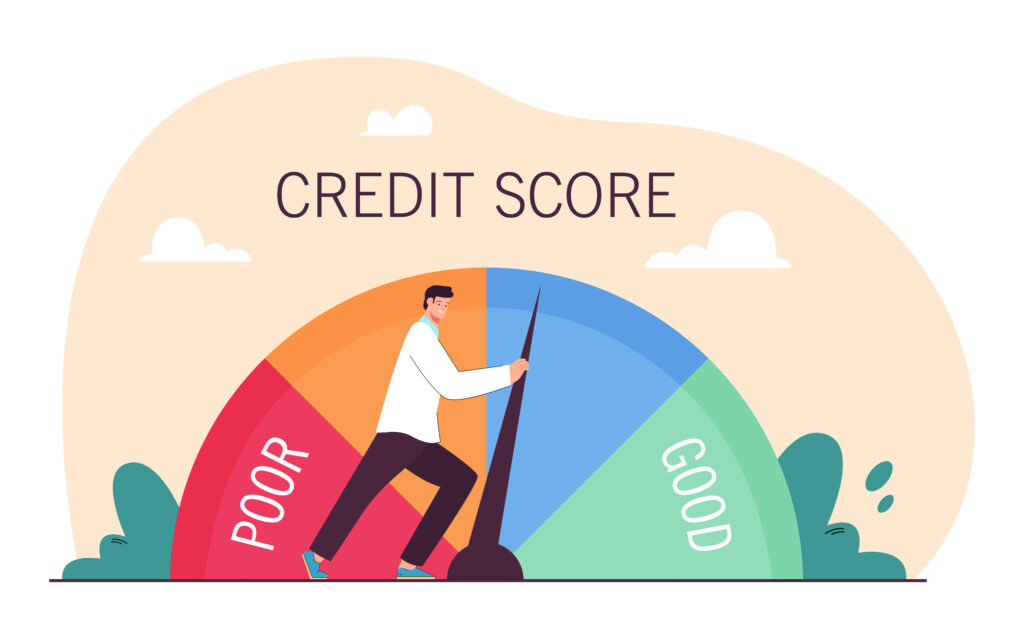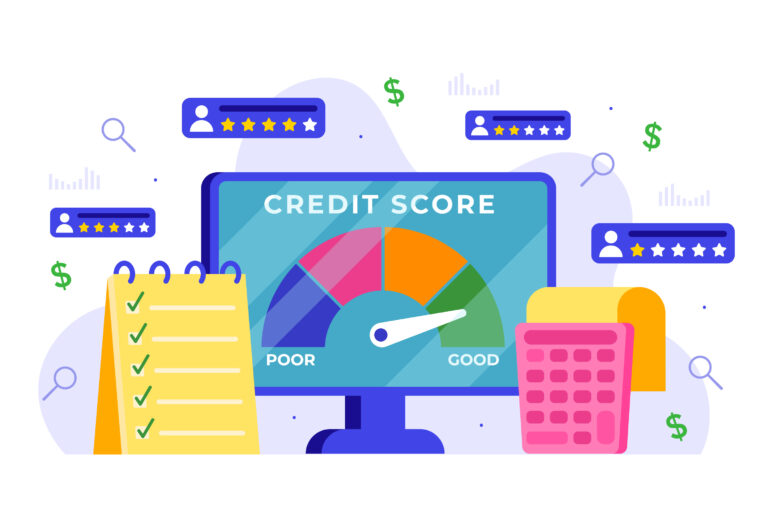5 Best Financial Habits That Boost Your CIBIL Score (MSMEs)
Table of Contents
Introduction
For micro, small, and medium enterprises (MSMEs), including small pharmacies and clinics, a strong credit profile is more important than ever.
Whether you’re applying for a business loan, purchasing medical equipment, or negotiating better terms with suppliers, your Business Credit Score plays a major role in determining your financial credibility.
Fortunately, building and improving your Business CBIL Score (CIBIL stands for Credit Information Bureau India Limited) doesn’t require massive loans or complicated strategies.
With a few consistent financial habits, you can boost your creditworthiness, access better financing, and grow your small business with confidence.
Let’s explore the top 5 financial habits MSMEs should adopt to build a healthy CBIL score in 2025.
What is a Business CBIL Score?
A Business CIBIL Score is a 3-digit number (ranging from 300 to 900) that reflects how well your business handles credit.
It is calculated by credit bureaus like CIBIL, Experian, and Equifax based on your repayment behavior, outstanding dues, credit utilization, and other financial factors.
A high credit score (above 750) means your business is low-risk for lenders. A low score (below 650) can limit your ability to get loans or force you into high-interest borrowing.
1. Pay Your EMIs, Credit Bills, and Vendor Dues On Time
Why It Matters:
Your payment history makes up around 35% of your CBIL score.
Even a single missed payment on a loan, credit card, or supplier invoice can negatively impact your score and stay on your report for years.
How to Do It:
- Set calendar reminders or enable auto-payments for EMIs and bills.
- Maintain an emergency cash buffer for tight months.
- Communicate with lenders or vendors early if you anticipate delays.
Real Impact:
A pharmacy owner who pays supplier bills and EMIs on time for 6 straight months can see an improvement of 30–50 points in their business credit score.
2. Keep Your Credit Utilization Below 30%
Why It Matters:
The Credit Utilization Ratio (CUR) is how much of your available credit limit you use. For example, using ₹60,000 from a ₹1,00,000 limit means 60% utilization too high!
Ideally, CUR should be below 30% to signal financial discipline.
How to Do It:
- Pay off outstanding amounts weekly or in small daily chunks.
- Request a credit limit increase (but use it responsibly).
- Spread expenses across multiple cards or accounts.
Real Example:
If a small pharmacy uses ₹20,000 from a ₹1,00,000 card limit and pays it down in parts every few days via UPI & Cards, their utilization stays low, positively impacting their Business CBIL Score.
3. Avoid Multiple Credit Applications in a Short Period
Why It Matters:
Every time you apply for a business loan or credit card, a hard inquiry is made on your credit report.
Too many applications in a short time reduce your score and signal that your business may be financially unstable.
How to Do It:
- Only apply when necessary and when you’re confident of approval.
- Avoid applying to multiple lenders at once.
- Use pre-approved offers from banks or NBFCs whenever possible.
Pro Tip:
Space out your credit applications by at least 3 to 6 months to reduce the negative impact on your CBIL score.
4. Maintain a Healthy Mix of Secured and Unsecured Credit
Why It Matters:
Having both secured loans (like term loans, LAP, equipment loans) and unsecured loans (credit cards, overdrafts) shows that your business can handle different types of financial obligations responsibly.
This diversity adds about 10% weight to your credit score.
How to Do It:
- If you only have a working capital loan, consider adding a secured loan like an equipment lease.
- Use business credit cards for recurring expenses, but repay them on time.
- Avoid relying on just one type of credit.
Bonus Tip:
Using UPI-linked business credit cards for daily purchases helps build repayment history and contributes to a healthier mix.
5. Monitor Your Credit Report Regularly and Fix Errors
Why It Matters:
CIBIL and other credit bureaus sometimes make mistakes, like showing unpaid loans that were cleared or duplicate entries. Such errors can unfairly drag down your business credit score.
How to Do It:
- Download your free credit report every 6 to 12 months from CIBIL or Experian.
- Look for wrong entries, outdated info, or accounts that don’t belong to you.
- Use the credit bureau’s dispute resolution process to fix issues.
Impact:
Fixing even one wrongly reported overdue loan can raise your CBIL score by 50–100 points.

Additional Good Habits for MSMEs
Apart from the top 5, here are a few bonus practices to strengthen your business credit profile:
Keep Older Credit Lines Open
Even if you’re not using a credit card, keeping it active helps with the length of your credit history, which makes up 15% of your score.
Separate Business and Personal Accounts
Use a dedicated business bank account and credit card. This builds a cleaner financial footprint and protects your personal credit score.
File All Returns On Time
Delays in GST, income tax, or MCA filings may indirectly affect your chances of getting a loan or working capital.
Leverage Digital Payments
Digital payments through UPI & Cards create a trackable transaction history, which fintech lenders and credit scoring models now consider positively.
Why Business Credit Score Matters for Small Pharmacies
For a small pharmacy or clinic, maintaining a strong Business CBIL Score can unlock several benefits:
- Easier access to business loans for inventory or expansion
- Lower interest rates
- Higher credit card and overdraft limits
- Better payment terms with suppliers
- Faster approvals for medical equipment leasing or purchases
Pharmacies operating mostly in cash may struggle to build a credit footprint.
But by accepting digital payments, using cards for expenses, and following good financial practices, they can still build strong CBIL scores.
Case Example: Neha’s Medical Store
Neha, who owns a pharmacy in Nagpur, had a low CBIL score (around 620). She started:
- Paying her credit card bills twice a month
- Accepting more payments via UPI and cards
- Using a small business loan responsibly
In just 6 months, her score went up to 770. This helped her get a ₹25 lakh working capital loan at 11% interest, compared to the 16% she was paying earlier.
Conclusion
For MSMEs like small pharmacies and clinics, building a strong Business Credit Score is not just about taking loans, it’s about adopting smart financial habits.
By making payments on time, keeping your credit usage low, avoiding frequent credit applications, maintaining a balanced credit mix, and regularly checking your credit report, you can steadily Build Your Business CBIL Score and unlock new growth opportunities.
Digital tools like UPI & Cards now offer an easy way to build credit history, even if you haven’t taken many loans before.
Start small, stay consistent, and let your financial discipline open doors to better financing and long-term success.
FAQs
Q1: How long does it take to improve a Business CBIL score?
It usually takes 3–6 months of disciplined financial behavior to see noticeable improvements in your score.
Q2: Is using UPI helpful for credit scores?
Yes. Many fintech lenders and scoring models are now using digital payment behavior, including UPI usage, as a proxy for financial credibility.
Q3: Can a personal credit score affect my business loan approval?
Yes, especially for small businesses and sole proprietors. Lenders often evaluate both personal and business credit profiles.
Q4: How do I check my Business CBIL Score?
You can visit the official CIBIL or Experian website and request a business credit report (paid versions may offer more details).
Q5: Should I close unused credit cards?
No. Keeping older cards open, even with zero balance, helps your credit history length and utilization ratio.
Also Read
- Pradhan Mantri Jan Arogya Yojana : Great Opportunity for Small Healthcare Providers
Indian Healthcare Sector:-Want to know how Digital India Is Transforming Small Pharmacies?
Want Better Rates and Priority Supply? Pay Your Vendors Early — Here’s Why It Works
Running a Private Clinic? Here’s How to Track and Cut Monthly Costs





